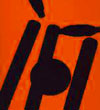
With terror attack on Sri Lankan cricketers in Lahore on March 2 this year, the notorious tentacles of terrorists have spread to sports with a vengeance, due to which the Indian Premier League (IPL) being shifted out of the country to be played in South Africa. The commando-style terror operation in Lahore, which the world saw during Mumbai strikes, has not only sent shock wave across the world, but also put the security agencies in India on high alert, as dates of general elections 2009 and IPL were coinciding. The attack is a chilling memory of the 1972 Munich Olympic attacks in which terrorists gunned down 11 Israeli athletes. However, India, as victims of cross border terror attacks for the last fifty years, could become the unfortunate target, while going ahead with both the elections as well as the IPL.
Given the strategy, style and execution of terror strikes in recent times, nothing seems safe from the blitzkrieg of mindless firings and bomb explosions from determined terror groups. Since much of the security attention would be focused on conducting general elections, ensuring safety of players and spectators during IPL, which will be played at different venues, is a near impossible task, and any slight lapse on the part of security agencies would result in huge casualty apart from possible backlash from the angry fans. In such a situation, shifting of IPL to South Africa is a judicious though painful decision.
Since terrorists are not only anti-human, but also anti-democracy, and those from Pakistan are totally averse to India as the largest democracy in the world, disruption to election process through wrecking havoc among voters would be an ideal choice for them to put India on the back foot. In principle, terrorists’ hatred lies with rule of law as practiced in India, which gains strength from a successful democratic election. Like they have done in Pakistan, terrorists would love to create chaos like situation in India as well. There were intelligence inputs of terrorist attacking political leaders during election campaign in order to create communal divide in the country.
While terror organizations do aim to receive worldwide attention via such attacks where maximum casualty could be achieved by putting in minimum efforts. Crowd is the soft target, as India has witnessed in attacks in Jaipur and Delhi where busy market places were selected as targets, and any attack during election rally or cheering spectators would be disastrous, as one can imagine the death and destruction followed by general stampede. Providing security on a massive scale to two crowd-pulling events would be a risky business for agencies. Given the overt criticism of security agencies after every terror strike, thousand fingers will point to the Achilles’ Heels within the system.
One big reason for shifting IPL to South Africa is the fact that the government wants to remain firm on a single focus: elections. Since democracy is the strength of the nation on which all activities and events take place, it rightly prefers elections to be conducted smoothly. It does not mean one should undermine India’s security arrangement. At the height, for example, of Mumbai attack, India successfully continued with cricket series with England. But then, providing security on a large scale to two big events simultaneously might result in sort of weakling at some places that India does not want to leave unprotected. Giving room, therefore, to the sworn enemies of India, is no less than hara-kiri. In the face of scathing attack from the opposition, the Home Minister’s firmness on hosting IPL outside India has a valid point, as India likes to continue with the diplomatic upper hand that it has gained since Pakistan’s acquiescence to its involvement in Mumbai attack.
The cricket lovers, fans and sponsors must realize the gravity of the situation in case of bizarre terror attacks. If they like to see international cricket matches on Indian soil to be played in future, they must realize what happened to Sri Lankan cricketers, and what about cricket diplomacy between Pakistan and Sri Lanka. While six Sri Lankan cricketers were lucky to escape with injuries only, this may not be the case every time. Any single casualty, therefore, will have far reaching impact on India’s foreign relation with the country that cricketer belongs to, including general conception about the weak security set up in the country. Indian does not like this sort of embarrassing situation to prevail.
Like anyone else, the fans and sponsors would not like India to become Pakistan, where no country wants to play cricket. Following the Mumbai terror attacks, the ICC cancelled the 2009 Champion's Trophy, which was to be hosted by Pakistan. Calling off tours by Sri Lanka after the Lahore terror attack means the postponement of any cricket match between the two countries sine die. In the event of any disruption due to terror attack, India, too, will have to face isolation that the country at this stage would not expect to happen. While cricket can wait, human lives cannot, and more so at a time when elections are in progress.
|
|


Comments:
mir azhar
March 31, 2009 at 12:00 AM
It is a shame for India that IPL is becoming IFL(international foreign league).Itis demeaning India.